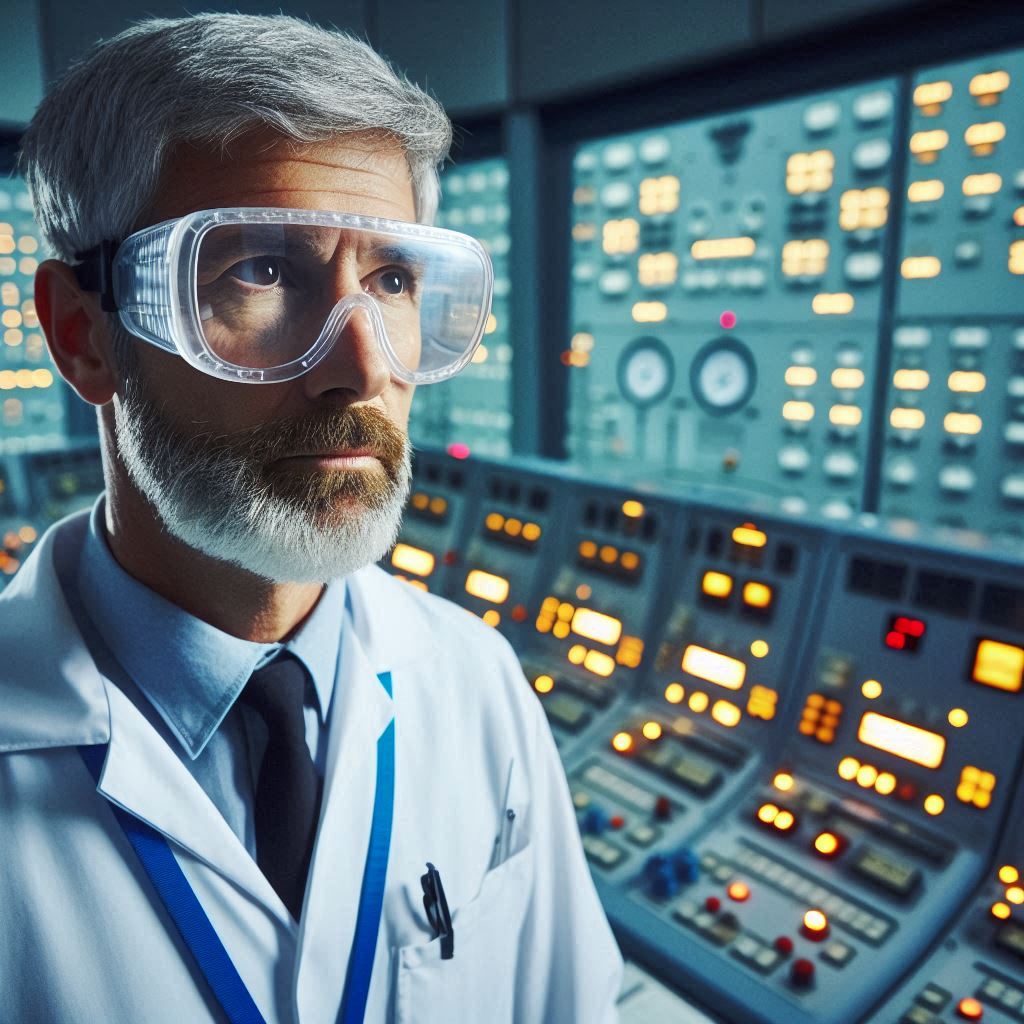Introduction
Nuclear engineering focuses on harnessing the power of atomic nuclei.
It includes designing and managing nuclear power plants and developing medical applications.
Nuclear engineers play a vital role in ensuring the safety and efficiency of nuclear systems.
The demand for nuclear engineers is growing.
Various industries, including energy, medicine, and defense, require their expertise.
As the world seeks cleaner energy solutions, nuclear power becomes increasingly important.
This shift boosts the need for skilled nuclear engineers to design and maintain advanced nuclear technologies.
Possessing the right skills is crucial for a successful career in nuclear engineering.
Technical proficiency is a must.
Engineers must understand complex systems and ensure their safe operation.
Problem-solving skills are essential.
Engineers often face unexpected challenges that require quick and effective solutions.
Communication skills are also important.
Nuclear engineers work in multidisciplinary teams.
They must convey complex ideas clearly to colleagues and stakeholders.
Attention to detail cannot be overlooked.
Small errors in this field can have significant consequences.
Engineers must meticulously review their work to ensure accuracy.
Additionally, staying updated with industry advancements is vital.
The field of nuclear engineering evolves rapidly.
Engineers must continuously learn and adapt to new technologies and regulations.
Understanding of nuclear principles
Nuclear physics and reactor technology form the bedrock of nuclear engineering. Understanding nuclear reactions is essential for anyone in the field.
Fundamental Concepts of Nuclear Physics and Reactor Technology
Nuclear physics deals with the particles and forces within an atom’s nucleus.
Key concepts include nuclear fission, fusion, and radioactive decay.
In fission, a heavy nucleus splits into smaller ones, releasing energy.
Fusion involves combining light nuclei to form a heavier nucleus, also releasing energy.
Radioactive decay is the process by which unstable nuclei release radiation as they transform into more stable forms.
Reactor technology applies these nuclear physics principles to design and operate nuclear reactors.
A nuclear reactor initiates and controls sustained nuclear chain reactions.
Its core contains fuel rods, usually made of uranium or plutonium.
Control rods manage the reaction rate by absorbing neutrons, while a coolant removes heat from the reactor core.
Importance of Understanding Nuclear Reactions
Knowing how nuclear reactions work is crucial for several reasons.
First, it ensures safety.
Engineers must understand how to control nuclear reactions to prevent accidents.
A thorough grasp of nuclear reactions helps in predicting and mitigating potential risks.
It also aids in troubleshooting and resolving operational issues.
Second, understanding nuclear reactions optimizes reactor efficiency.
By knowing the intricacies of fission and fusion, engineers can enhance the performance and output of reactors.
This knowledge contributes to advancements in reactor design and the development of more efficient nuclear technologies.
Role in Designing and Operating Nuclear Power Plants
Knowledge of nuclear physics and reactor technology is vital in designing nuclear power plants.
Engineers use this knowledge to create reactors that are safe, efficient, and reliable.
They determine the appropriate materials for fuel and control rods, design cooling systems, and develop safety protocols.
Operating a nuclear power plant also requires a deep understanding of these concepts.
Engineers must monitor reactor conditions, manage reaction rates, and handle radioactive materials safely.
They must respond to changes in reactor behavior and implement emergency procedures if necessary.
Read: The Role of Aerospace Engineers in Satellite Development
Strong analytical skills
The Need for Critical Thinking and Problem-Solving Skills in Nuclear Engineering
Critical thinking and problem-solving skills are crucial for nuclear engineers.
These abilities help them tackle complex issues and ensure safety.
Without these skills, managing the intricate and high-stakes environment of nuclear facilities would be impossible.
Engineers must constantly analyze data, evaluate scenarios, and develop effective solutions.
Examples of Complex Problems that Nuclear Engineers Often Encounter
One example of a complex problem is managing nuclear reactor malfunctions.
When a reactor shows signs of trouble, engineers must quickly identify and resolve the issue to prevent a catastrophe.
Another complex problem is the disposal of nuclear waste.
Engineers must devise safe, long-term storage solutions for radioactive materials.
This task requires a deep understanding of material science, environmental impact, and safety protocols.
Nuclear engineers also face challenges in designing new reactors.
They must ensure these reactors are efficient, safe, and meet regulatory standards.
This involves complex calculations, simulations, and the ability to foresee potential issues.
Engineers must balance innovation with safety, always prioritizing the well-being of people and the environment.
How Analytical Skills Help in Predicting and Preventing Potential Risks in Nuclear Facilities
Analytical skills are essential for predicting and preventing potential risks in nuclear facilities.
Engineers use these skills to interpret data from various sensors and monitoring equipment.
By analyzing this data, they can detect early warning signs of potential issues.
This proactive approach allows engineers to address problems before they escalate.
For instance, engineers monitor radiation levels and temperature fluctuations in reactors.
If they notice unusual patterns, they can investigate and take corrective actions.
Analytical skills also help in risk assessment and mitigation.
Engineers evaluate the likelihood of different scenarios and develop contingency plans.
Nuclear engineering is a field that requires individuals with strong analytical skills to effectively navigate the
Read: Aerospace Engineering in Commercial Spaceflight
Knowledge of radiation safety
Understanding radiation hazards and safety protocols is crucial for nuclear engineers to ensure the safety of workers and the public in nuclear facilities.
Here are some key points to consider when it comes to radiation safety:
Importance of understanding radiation hazards and safety protocols
When working in nuclear engineering, exposure to radiation is inevitable.
It is essential for nuclear engineers to have a deep understanding of radiation hazards to protect themselves and others.
Radiation can have harmful effects on the human body, such as causing cancer and genetic mutations.
By knowing how to handle radioactive materials safely, nuclear engineers can minimize the risk of exposure and prevent accidents that could harm both people and the environment.
Regulations and guidelines governing radiation protection in nuclear engineering
In order to ensure the safety of workers and the public, there are specific regulations and guidelines that govern radiation protection in nuclear engineering.
These regulations are put in place by government agencies such as the Nuclear Regulatory Commission (NRC) in the United States.
They outline the permissible exposure limits for radiation, as well as the proper procedures for handling radioactive materials.
It is crucial for nuclear engineers to adhere to these regulations to prevent accidents and protect the health of individuals involved in nuclear activities.
Role of nuclear engineers in ensuring safety in nuclear facilities
Nuclear engineers play a crucial role in ensuring the safety of workers and the public in nuclear facilities.
They are responsible for implementing radiation protection programs that comply with regulations and guidelines.
This includes monitoring radiation levels, conducting risk assessments, and providing training on radiation safety to personnel.
By taking these measures, nuclear engineers can create a safe working environment that minimizes the risk of radiation exposure and protects the health of everyone involved in nuclear activities.
Read: Essential Aerospace Engineering Textbooks

Technical Proficiency in Nuclear Systems
The Essential Technical Skills Required for Working with Nuclear Reactors and Other Nuclear Systems
Nuclear engineers need a range of technical skills to work effectively with nuclear reactors and systems.
Proficiency in mathematics and physics is fundamental.
Engineers use these skills to understand nuclear reactions and energy transfer processes.
Knowledge of thermodynamics and fluid mechanics is also essential.
These areas help engineers design systems that manage heat and fluids within reactors safely and efficiently.
The Use of Computer-Aided Design (CAD) Software in Nuclear Engineering
Computer-aided design (CAD) software is crucial in nuclear engineering.
Engineers use CAD to create detailed models of nuclear reactors and components.
This software allows for precise design and simulation of reactor operations.
With CAD, engineers can identify potential design flaws and optimize reactor performance before actual construction.
This predictive capability is vital for ensuring safety and efficiency in nuclear projects.
The Importance of Hands-On Experience with Nuclear Equipment and Instrumentation
Hands-on experience with nuclear equipment and instrumentation is invaluable for nuclear engineers.
Working directly with reactors and other nuclear systems provides practical knowledge that cannot be gained from textbooks alone.
This experience helps engineers understand the real-world applications of their theoretical knowledge.
It also prepares them for unexpected issues that may arise during reactor operation.
Hands-on training ensures engineers are adept at maintaining and troubleshooting nuclear systems.
Read: The Impact of Aerospace Engineering on Modern Life
Transform Your Career Today
Unlock a personalized career strategy that drives real results. Get tailored advice and a roadmap designed just for you.
Start NowCommunication Skills
In the field of nuclear engineering, effective communication is crucial for success.
Engineers must clearly convey complex technical information to colleagues, regulators, and the public.
Clear and concise communication helps prevent misunderstandings and ensures project goals are met.
Nuclear engineers play a key role in educating others about nuclear technology and its benefits.
Importance of Effective Communication
Effective communication is essential in nuclear engineering projects to ensure safety and efficiency.
Miscommunication can lead to costly errors, delays, and even safety risks in nuclear facilities.
Clear communication helps in coordinating tasks, sharing information, and making informed decisions.
Without proper communication, nuclear projects may face regulatory challenges and public scrutiny.
Need for Clear and Concise Communication
In the high-stakes environment of nuclear engineering, there is no room for ambiguity in message delivery.
Colleagues must understand instructions clearly to carry out tasks accurately and safely.
Regulators rely on clear communication to assess compliance with safety standards and regulations.
The public needs accurate information about nuclear technology to make informed decisions and dispel misconceptions.
Role of Nuclear Engineers in Education
Nuclear engineers are not just technical experts but also educators in their field.
They play a vital role in disseminating accurate information about nuclear technology and its applications.
Educating the public about the benefits of nuclear energy helps to build trust and acceptance.
By engaging with stakeholders and addressing concerns, nuclear engineers can promote the safe and sustainable use of nuclear technology.
Teamwork and collaboration
How Nuclear Engineers Often Work in Interdisciplinary Teams on Complex Projects
Nuclear engineers often collaborate in interdisciplinary teams.
These teams include professionals from various fields, such as mechanical engineers, electrical engineers, and environmental scientists.
Working together, they address complex nuclear engineering projects that require diverse expertise.
The Importance of Collaboration with Other Engineers, Scientists, and Stakeholders
Collaboration is essential in nuclear engineering.
Engineers must work closely with scientists and stakeholders to achieve successful outcomes.
For instance, designing a new nuclear facility requires input from civil engineers, architects, and environmental experts.
This collaborative approach ensures that all aspects of the project are thoroughly considered.
How Teamwork Contributes to Successful Outcomes in Nuclear Engineering
Teamwork is vital in nuclear engineering projects.
When engineers collaborate effectively, they pool their knowledge and skills, leading to better solutions.
For example, during a reactor design phase, input from various experts helps create a more robust and efficient system.
This collective effort enhances safety, performance, and regulatory compliance.
Discover More: How Environmental Technicians Impact Public Health
Delve into the Subject: Top Networking Tools Every Engineer Should Know
Adaptability and Resilience
The Unpredictable Nature of Working in the Nuclear Industry
The nuclear industry is inherently unpredictable.
New technologies and discoveries constantly change the landscape.
Engineers must stay updated with the latest advancements and be ready to adapt their knowledge and skills.
How Nuclear Engineers Must Be Adaptable to Changing Regulations and Technologies
Nuclear engineers must also adapt to changing regulations.
Governments frequently update safety and environmental standards.
Engineers must ensure their projects comply with these new rules.
Flexibility and adaptability are essential in this ever-evolving field.
The Importance of Resilience in Handling Challenges and Setbacks in Nuclear Projects
Resilience is another key trait for nuclear engineers.
Projects often face setbacks, from technical failures to regulatory hurdles.
Engineers must remain determined and focused, finding solutions despite challenges.
Resilience helps them stay motivated and committed to their goals.
Therefore, critical thinking and problem-solving skills are vital for nuclear engineers.
These skills help them address complex problems, adapt to changes, and maintain resilience in the face of setbacks.
The nuclear industry is challenging and unpredictable, but with these skills, engineers can navigate its complexities and drive innovation and safety.
Find Out More: Challenges Faced by Transportation Engineers Today
Continuous learning and professional development
The Need for Staying Updated on the Latest Advancements in Nuclear Technology
Staying updated on the latest advancements in nuclear technology is essential for engineers.
Continuous learning helps them implement cutting-edge solutions and improve existing systems.
New technologies can offer safer, more efficient methods for energy production and waste management.
Engineers must remain informed about these developments to stay competitive and innovative.
The Benefits of Pursuing Further Education and Certifications in Nuclear Engineering
Pursuing further education and certifications in nuclear engineering offers numerous benefits.
Advanced degrees and certifications enhance knowledge and expertise, opening doors to higher-level positions.
They provide engineers with a deeper understanding of nuclear technology, safety protocols, and regulatory requirements.
This advanced knowledge allows engineers to tackle more complex problems and contribute to significant projects.
The Importance of Networking and Attending Industry Conferences for Career Growth
Networking and attending industry conferences are vital for career growth in nuclear engineering.
These events offer opportunities to connect with industry leaders, share knowledge, and learn about the latest advancements.
Networking can lead to new job opportunities, collaborations, and mentorship.
Conferences often feature workshops and presentations on cutting-edge research, helping engineers stay informed and inspired.
Conclusion
To excel in nuclear engineering, several key skills are vital.
First, strong analytical skills are essential.
They enable you to solve complex problems effectively.
Critical thinking skills allow you to evaluate situations and make informed decisions.
Communication skills help you convey technical information clearly and collaborate with multidisciplinary teams.
Proficiency in mathematics and physics forms the foundation of nuclear engineering principles.
Attention to detail ensures precision in your work, crucial for safety and efficiency.
Aspiring nuclear engineers should focus on developing these skills.
Practice solving intricate problems to strengthen your analytical abilities.
Engage in activities that challenge your critical thinking.
Join study groups or clubs to enhance your communication skills.
Continuously study mathematics and physics to deepen your understanding.
Pay attention to detail in every task you undertake.
Nuclear engineering is a rewarding and vital field.
Nuclear engineers advance technology and address global energy needs.
Your work will contribute to sustainable energy solutions and technological innovations.
You will help ensure the safety and efficiency of nuclear power plants.
By honing these key skills, you will be well-prepared for a successful career in nuclear engineering.
Embrace opportunities to learn and grow in these areas.
Seek internships, join professional organizations, and attend workshops.
The effort you put into developing these skills will pay off in your career.
All in all, aspiring nuclear engineers must cultivate strong analytical, critical thinking, communication, mathematical, and detail-oriented skills.
These skills will equip you to excel in this crucial and rewarding profession.
Your contributions as a nuclear engineer will play a significant role in advancing technology and meeting the world’s energy demands.
[E-Books for Sale]
The Big Book of 500 High-Paying Jobs in America: Unlock Your Earning Potential
$19.99 • 500 High-Paying Jobs • 330 pages
Explore 500 high-paying jobs in America and learn how to boost your career, earn more, and achieve success!
See All 500 High-Paying Jobs of this E-Book
1001 Professions Without a Degree: High-Paying American Jobs You Can Start Now
$19.99 • 1001 Professions Without a Degree • 174 pages
Discover 1001 high-paying jobs without a degree! Unlock career tips, skills, and success strategies for just $19.99!




